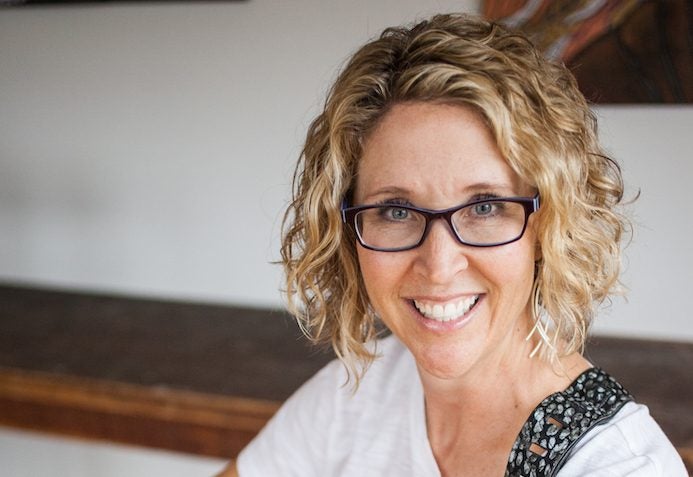Seeking Connection: Cultivating a growth mindset to break barriers
Published 11:37 am Saturday, March 30, 2019

- Erin Smith is the owner of the OM place in Winchester, the author of “Sensible Wellness” and the online host of the OM channel. Follow her on Twitter @erinsmithauthor.
I love the Newport Aquarium, and I go a few times a year.
I am calmed by the jellyfish, fascinated by the sea horses and charmed by the tide pools.
But the best thing about the aquarium is the acrylic tunnels they have installed, designed in such a way sharks swim underneath, above and all around you, allowing you to see these mesmerizing creatures from every angle.
I have often wondered why these prehistoric monsters don’t eat the other fish that share the tank. How is the water always so crystalline blue? Shouldn’t it be red from the constant bloodbath?
It turns out some species of sharks are trainable. Here’s what I learned:
First, a marine biologist will release smaller “bait” fish into the tank with the shark. Predictably, the shark attacks and devours those fish.
Then the marine biologist will slide a partition made of clear Plexiglass into the tank, separating the shark and the smaller fish.
When the shark attacks this time, he slams into the partition.
For a creature made almost completely of cartilage, sharks can be fairly hardheaded. The shark will slam its nose into the partition for days and sometimes weeks, growing less and less aggressive with each attempt.
At some point, the shark will become frustrated and stop attacking altogether.
A few days later, the marine biologist removes the partition and allows the smaller fish to swim hither and yon around the shark.
The poor shark sees a barrier between himself and the smaller fish, even though the real one no longer exists.
His brain has accepted the setback as the only conclusion and now will only eat what the marine biologists offer it.
We’re a lot like those domesticated sharks, writing stories that prevent us from living our best life.
“I’m too old.”
“I’m too fat.”
“I’m not smart enough.”
“I’m not creative.”
“I could never.…”
These imagined, self-limiting doubts keep us safe but also keep us playing small. We don’t have to risk failure or ridicule, but we also never achieve our greatest dreams.
I used to be a writer that didn’t write. I mean, I wrote, but only in the safety of my journal.
I have had a lifelong wish to be published, but my domesticated shark brain said that I had “nothing to say that anyone would want to hear.”
That I was a “talentless hack who should stick to teaching yoga.”
That “real writers had MFAs and their own offices” (I have neither).
That my writing “wasn’t good enough, would never be good enough.”
One day, it occurred to me the fear of not taking action on that publishing dream was screaming louder than the fear of failing at it.
So I took a risk and now have more than a thousand people who read my column.
I’m still improving and learning and honing my craft to be sure, but at least I am sharing it with the world.
The domesticated sharks of the world have a fixed mindset, a belief our character, intelligence and creative ability are static, unchangeable givens.
They’ll never fulfill their potential because they no longer believe they have growth potential.
So they swim on, frustrated and disappointed in life, convinced things will always end in an empty belly and a bruised nose.
We should remember ocean sharks, in their natural habitat, never give up.
Like these wild creatures, we too can cultivate a growth-mindset, a belief in our inherent ability to improve and advance our skill set.
The world needs our biggest, most audacious dreams.
Stop letting your invisible barriers prevent you from taking action on your dreams.
It’s like The Eagles sing in the song “Already Gone,” “So oftentimes it happens, that we live our lives in chains …. and we never even know we have the key.”
Erin Smith is the owner of the OM place in Winchester, the author of “Sensible Wellness” and the online host of the OM channel. Follow her on Twitter @erinsmithauthor.





